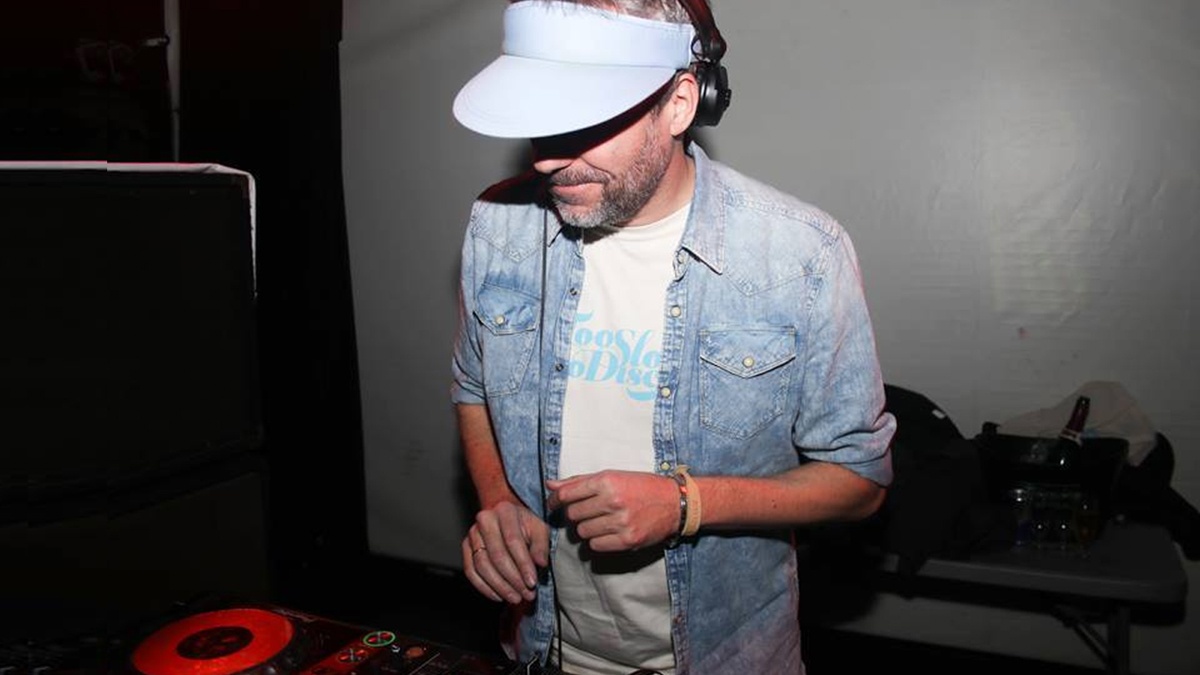Marcus, the new TSTD edition marks a paradigm shift in your successful series, because “Neo” is to be taken literally. For the first time, the focus is on modern artists. Was that a natural development for you?
It felt natural to me. I think the story of the lost forgotten Westcoast era mid 70s to mid 80s has been told by now. Everything has been unearthed. There are hardly any big surprises left, and the new medium to present these discoveries are the many, many DJ mixes, that all those forums, websites and diggers are now sharing, because you don’t have to spend years looking, asking for rights or even worse: pay for it. We are entering the time of streaming. Owning and buying music is not a thing for huge parts of a new generations, which makes it hard to finance the old concept of TSTD albums. Remember, major companies own all old tracks and they NEVER give away streaming rights. I still love and play the many edits and reworks of that sound that exist, but there is no way to convince labels and artist from that time to give the rights for those edits, which would be exciting. I was more impressed by new music recently, and a lot of it came from France. And it is always the moment of excitement that I am looking for to start a new compilation adventure. I need to tell a story, and I found that this new smooth French touch is a great story to share. And it turns out that even a lot of French people did not know these acts and scene existed.
What fascinates you about today’s French music and club scene? Or, better said, what does Paris have, that London and Berlin does not have at the moment?
Well, Germany has always been and will always be the country of head-heavy culture, deep club music and cold Techno. It was never been a very sunny place, music wise, although – of course – there are (and always have been) small exceptions nowadays like Roosevelt, Satin Jackets etc. London used to be a big influence on me, but I have the feeling “Brexit killed the radio star!”
Since the 50s and 60s, French artists have repeatedly had a great influence on the music world – from Michel Legrand to Serge Gainsbourg to Daft Punk. Are we experiencing a renaissance of the “French Touch”?
I think it has never really gone away in France. Many of these bands and DJs on the new compilation have done this music for years. It is just a bigger, fresher and younger scene right now. French pop was always big in France, but the thing that is similar to the times of the original French Touch is that suddenly the outside world is looking at some new French artists with big interest: Bertrand Burgalat and Yuksek have had huge fan bases all over the world for some time now, L’Impératrice and Polo & Pan are the strong newcomers, selling out venues all over Europe, Chassol wrote lots of tracks for Solange, Frank Ocean and is championed by Diplo. By the way, if I had to decide, my favorite musician of ALL TIME would be Serge Gainsbourg.
“Neo” contains 17 tracks – some of them unreleased and exclusive for this compilation. What can the audience expect this time?
To me it is not far from the original volumes of TSTD, because it is still about sophisticated, elegant smooth music, that you can listen to at home, when you want to relax. I just changed the sound a bit, because it sounds more modern. (I know some of the die-hard TSTD purists will disagree heavily…). The vibe of the other volumes was often described by “driving in your convertible on the sunny coast highways in California”, now it is a drive down the “Nationale 7” from Paris to the Cote D’Azur, which is another trademark vibe, even people in China know what that feeling is like!
Many of these artists are well known in France, others remain hardly discovered in their homeland. How did you become aware of them?
I am still very curious, so I discover music every day. It takes some time for me to realize that a certain sound is actually worth telling a story on two sides of a vinyl record. My biggest influence for the new music is Soundcloud. It’s still my magic land (Youtube was the medium for that original West Coast sound). To me there are two central figures on this album, who hold everything together: Yuksek and Bertrand Burgalat. Both are connected to most tracks and bands in one way or another. Not only by having many of these acts signed to their labels Tricatel and Partyfine, but also by producing and remixing that sound! The original idea for the compilation was to introduce that new French sound to the outside world, it turns out that it was time to introduce that sound to many French people too….
With the band L’Impératrice you have one of the great new discoveries of the last year on the compilation. How did you get in touch?
I know, I’ve talked to you about the problems finding labels and rights for the first five volumes, but the thing about modern music is: Many of the labels, managements and bands involved are very interested in what’s going on around them. One of my favorite DJ teams in Paris, the trio of Crème de Coco, helped me to get in direct contact with the band, because Camille knew one of the guys in the band. They already knew TSTD, and I contacted their management, and we quickly agreed on having Vibes4YourSoul remix one of their tracks. I knew this would be a perfect combination! So this time licensing and contacting the right people was not difficult. Everybody was very helpful and understood what we wanted to do. It also helped that there are only two tracks licensed from a major company. Independent musicians and labels are always quick and open to new ideas.
You’ve also worked with two heavyweights of the French music scene for this edition: the legendary Bertrand Burgalat, boss of the Tricatel label, and the electro-disco magician Yuksek, who also runs the infamous Partyfine label. How did the collaboration come about?
Many people don’t know that for my first label Bungalow Records we released an album called “The Genius of Bertrand Burgalat” in 2000 showcasing that special warm retro futuristic sound he was and is famous for. We never lost contact, so he was the very first to say “Yes” to all my ideas. I deejayed as a support for Yuksek around 2009 on the Melt Festival, so we also met briefly before. He must be my most played producer in my DJ sets of all time, because since 2009 he liked to produce danceable music, that included Pop/Disco influences, which has always been my thing when I deejay. Both Bertrand and Yuksek helped me a lot with other things around the compilation, so they are hugely important to this new release.
Did all the artists you asked for already know the TSTD series?
Half of them did, others really liked the idea and we sent them some of the previous volumes. When we told them that the compilation would be released as a deluxe double vinyl, most of them understood directly that we are serious about what we do, because it is an expensive adventure and it has to make sense.
West Coast and Soft Rock reminiscences can be found with French bands and artists like Daft Punk, Justice and Phoenix for many years. What influence do you think have 70’s and 80’s West Coast, blue eyed soul and soft rock on today’s French music scene?
That sound is now part of today’s musical landscape, in the whole world. The difference to – for example – Germany is that the West Coast sound has always had an influence on French artists. Françoise Hardy, Véronique Sanson, France Gall, to name a few, all had their West Coast period in the late 70s/early 80s, while in Germany that was never a thing. The French always had an affection for elegant, smooth and warm sounds. The influence is on every single track on this compilation.
Marcus, could one say that France was the birthplace of the TSTD series? I’ve read that you compiled the first soft rock sampler whose success was the basis for TSTD at your parents’ house in France.
Yes, it is totally true and feels like a return to the start to me. I compiled the first TSTD in the countryside in the Ardèche – with a glass of red wine, some goat cheese, breathing the air of nature – and it was the remedy to my big life threatening identity crisis as an electronic DJ, musician and label boss. France saved my life, brought back warmth and soul, so it was the perfect backdrop for that West Coast sound.
Those who still cultivate the West Coast music heritage with enthusiasm today are often websites, podcasts and radio stations from France. Marcus, as a passionate connoisseur of France, where do you think the French enthusiasm for soft sounds and sophisticated arrangements comes from? Is there a similar attitude to life in California and the Côte d’Azur?
Yes there is. The sea influences life, it sets the time, it is the place you can go when you need some time off and get back in contact with nature or your inner self. By the sea you can look far and wide what opens your mind and soul. The city will always be a hectic and closed place.
Marcus, I’m sorry to ask, but do you think the West Coast/ Yacht Rock revival has finally passed its zenith?
I don’t think it passed its Zenith. I think it will be an integral part of modern music from now on. Of course all specialists will always be interested in new compilations with that original sound, to me the difference is, that the last five years, the normal outside music-world joined and visited our group of crazy AOR nerds, which helped to get that music out of a dirty, dark corner. There will always be a need for sophisticated smooth music to relax
What can we expect from you next?
It’s not clear yet. I’m working on more than five different ideas, none of them makes perfect sense right now. Their stories are not ready to be told or completed yet.
Marcus, thank you very much for the interview.
Thank you, I really appreciate all your enthusiasm throughout the last years.
Photo: Marcus Liesenfeld
This interview was published for the first time on April 26, 2019

